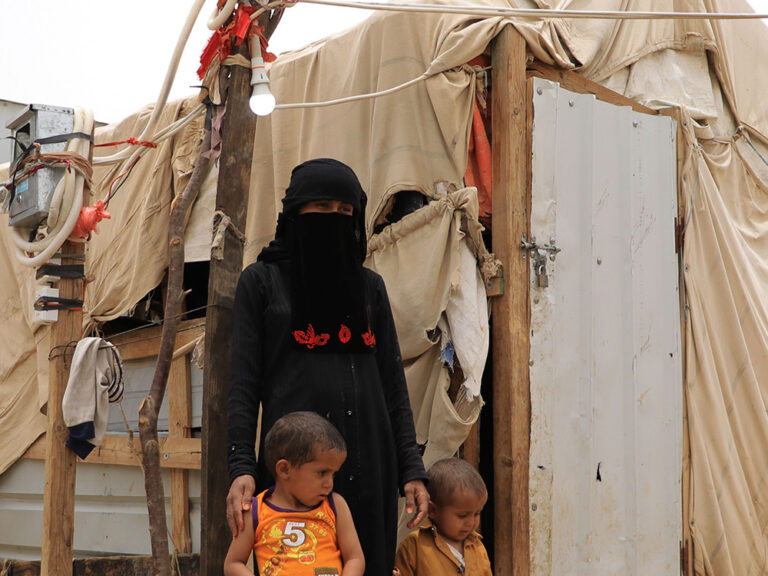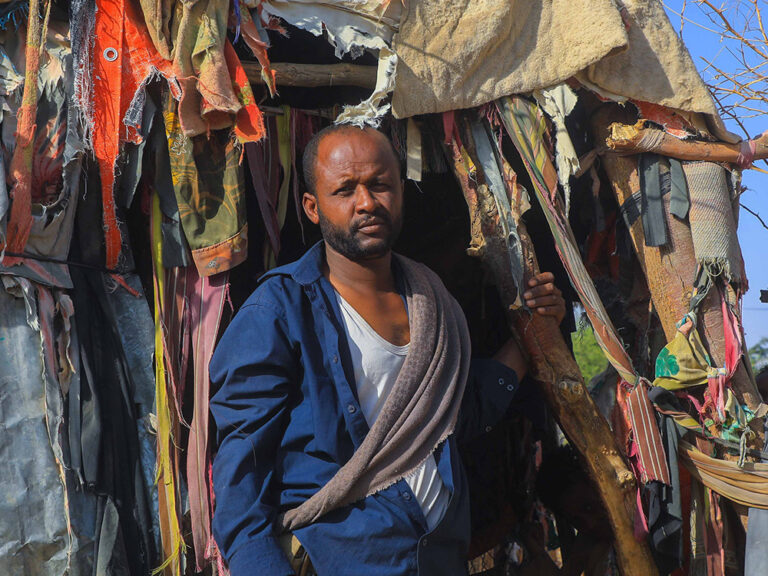Since 2004, The Houthi movement has been leading a rebellion against the military in Yemen. In 2014, tensions between Houthis and government forces escalated into outright civil war. Millions of people in Yemen are suffering from the heightened effects of armed violence, ongoing economic crisis and disrupted public services.
ShelterBox have previously provided people who are newly displaced with tents. Tarpaulins and rope were provided for people living in damaged shelters. Presently, in partnership with BCHR (Benevolence Coalition for Humanitarian Relief), we are providing households with durable shelters. These have an iron net frame and a concrete base. They offer a more durable shelter that is more effective for the typical weather and environment in Yemen.
Our partner, BCHR, met ith Salwa, who currently lives in a Yemen displacement camp with her two young sons.
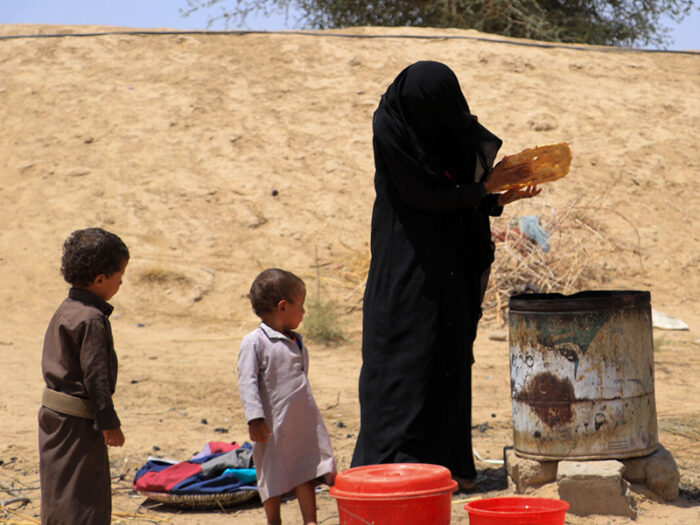

“The beautiful memories of the first days of marriage”
Before the start of the war Salwa use to live in a house with her late-husband’s family. They spent their days looking after the land and caring for their animals.
“We enjoyed sitting with family and relatives in the afternoon while feeding the cattle.”
When asked what Salwa’s fondest memories were, she said,
“The beautiful memories of the first days of marriage.”
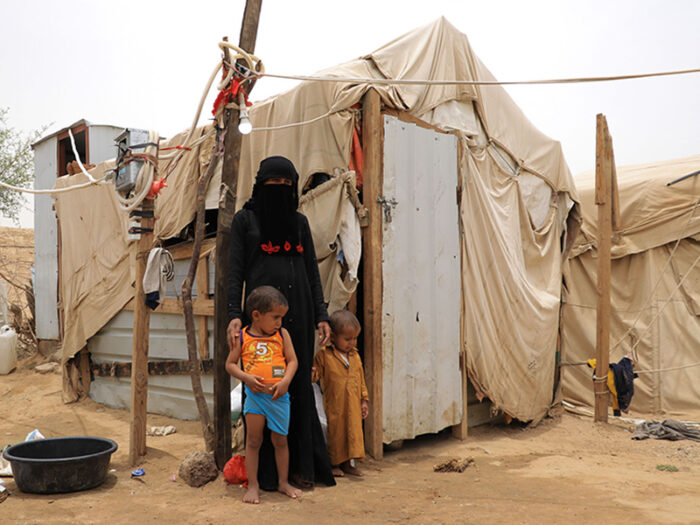

“I feel sad and oppressed that we left our homes empty, there is no life there”
When the war reached Salwa’s home, she and her family were forced to move to a nearby camp, leaving behind the only home they had ever known. They spent almost a year at the first camp, until they were forced to migrate multiple times to numerous other camps. In total, they have been displaced four times since 2018. Salwa says, “I feel sad and oppressed that we left our homes empty, there is no life there.”
Sadly, during the displacements, Salwa’s husband passed away. This meant Salwa and her two young sons had to live with her brother’s family, in an overcrowded shelter. Salwa explains, “Before the intervention, I did not have any shelter. I lived with my family in their basic shelter, which was made of iron covered with tarpaulins. It was built by one of my brothers, so that I could sit in it with my children.”
Relatives and friends helped her with the daily essentials, as Salwa was left with very little from her husband’s salary. “I do not have any work or source of income at the present time. I live with my children on what comes from my husband’s salary, which usually comes once a year, and it is very little, not even enough for one month. I rely on what comes from organisations to support my children.”
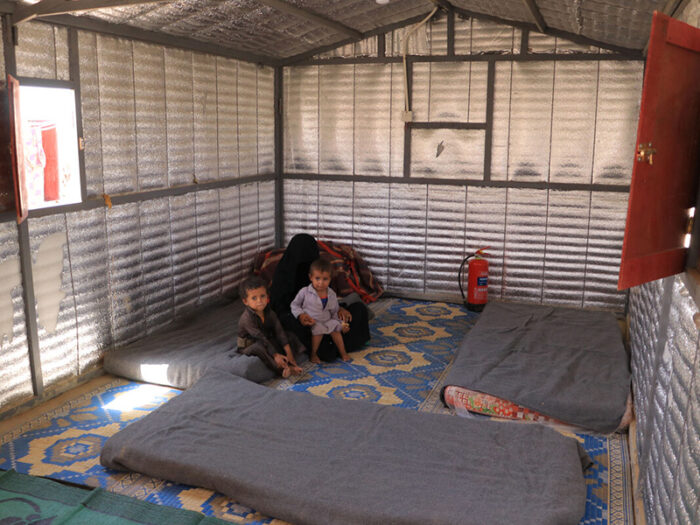

“Finally, after tiring and toiling, we will have a shelter of our own, for me and my children”
Salwa now lives in her own durable with her two sons, where they are safer and protected from the wind and rain.
Salwa says, “We felt happy. Finally, after tiring and toiling, we will have a shelter of our own, for me and my children.” Since moving out of her family’s shared shelter, Salwa tells us about the benefits of having their own shelter. “It helped us, we could sleep and rest in our own shelter without any overcrowding. Unlike the shared shelter with my family, now we can keep our own belongings.”
With new blankets and mattresses, Salwa’s family now sleep comfortably. Salwa tells us how her children sleep better at night now they feel safer. “[The shelter] provides safety from rain and sun, and from dogs that children are afraid of at night. It has a door, opposite the tent, where we use to feel frightened when anything approaches it. But now, [the shelter] provides privacy, because it is our own, and no one shares it with us.”
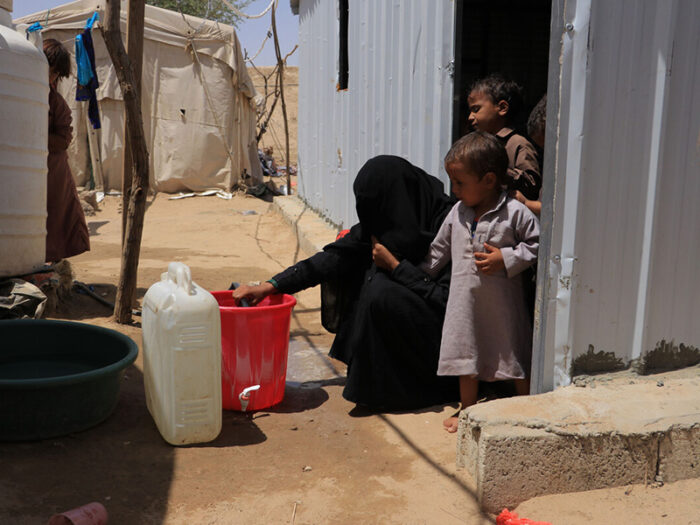

Looking ahead
When looking forward to the future, Salwa hopes for a better life for her two boys.
“I wish that our children get a better life than us, also to get education away from the war and displacement.”
Salwa thanks ShelterBox for her aid items and new shelter. She leaves us with her hopes for the future.
“As for the future, I hope that we will return to our homes and regions because we are tired of this life of displacement and living on what is provided to us by others.”

